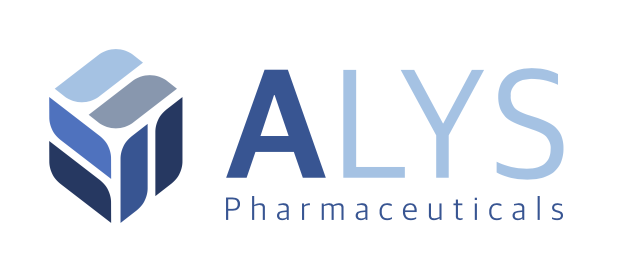New
Alys Pharmaceuticals: A New Kid on the Vitiligo Block
Alys Pharmaceuticals emerges as a new player in dermatology, pooling the strengths of six biotech startups with a $100M boost from Medicxi. Targeting conditions from vitiligo to psoriasis, Alys' launch heralds cautious optimism for skin treatment advances.
A Union of Innovators
Alys Pharmaceuticals is developing a pipeline of 14 active programs to tackle skin conditions like atopic dermatitis and vitiligo. The initiative is spearheaded by renowned experts such as John Harris and Nobel Laureate Craig Mello from UMass Chan Medical School.
Pooling resources from Aldena Therapeutics, Graegis Pharmaceuticals, Granular Therapeutics, Klirna Biotech, Nira Biosciences, and Vimela Therapeutics, Alys aims to expand its focus on inflammatory and autoimmune diseases, dermatology care for cancer patients, and rare skin conditions. The company's goal is to deliver seven to ten clinical Proof-of-Concept readouts in the next three years, potentially advancing at least one program to further studies. This approach mirrors the strategy behind Medicxi's previous success with Centessa Pharmaceuticals, which commenced with a $250 million investment and has since achieved a “Moderate Buy” stock recommendation.
Pipeline
A cornerstone of Alys Pharmaceuticals' approach is the STAR mechanism, an innovative technology aimed at enhancing topical drug delivery. STAR utilizes millimeter-scale particles, composed of either aluminum oxide or stainless steel, equipped with micron-scale projections. These are engineered to puncture microscopic pores within the stratum corneum, the outermost layer of the skin. Such a method, after a mere 10-second gentle application to porcine skin in laboratory conditions, has shown to enhance the delivery of dermatological drugs and macromolecules—those traditionally challenging or impossible to administer topically—by an impressive 10 to 100 times, according to findings published in Nature Medicine.
The pipeline, as detailed on the company’s website, signals a target IND (Investigational New Drug) application date in the first quarter of 2024 for a vitiligo gel peptide. Another candidate, Bispecific siRNA-lipid conjugate, is slated for readiness in the first half of 2026.
Business Model
While details on Alys’s business model remain sparse, a peek at Centessa Pharmaceuticals case offers potential insights. Centessa’s model, involving a constellation of specialized subsidiary firms, allows for focused disease research with the flexibility of a start-up and the support of a larger parent company. This model fosters innovation and efficiency, potentially mirroring Alys's approach. Centessa's 2023 financial report showcases effective resource management, with a cash reserve of $281 million, ensuring operational viability into 2026. The company's healthy financial standing and disciplined spending underscore its resilience in the biopharmaceutical development landscape.
Scientific Rigor and Ambition
What sets Centessa, and likely Alys, apart is the caliber of their scientific exploration, aiming for not just treatments but potentially curative therapies. Their development is grounded in solid scientific rationale, blending ambitious goals with a rigorous scientific approach. The Alys’ headquarters in Switzerland is run by co-founder and COO Thibaud Portal (formerly Galderma's Global Head of Prescription Medicines), while Medicxi's Francesco De Rubertis serves as Chairman of the Board.
Future Prospects
Alys Pharmaceuticals distinguishes itself with a unique business model, an impressive pipeline, and the capability to navigate the long drug development process. Its blend of start-up agility and enterprise-level resources positions Alys to tackle dermatological challenges effectively. The success of Alys will hinge on the seamless coordination of its subsidiaries and the strategic leadership from its Geneva headquarters.
📌 For more information on companies currently involved in vitiligo R&D, please check out our exclusive Vitiligo Drug Pipeline Analysis and Market Insights

FAQOther Questions
- What causes vitiligo?
The exact cause is a complex puzzle, but we know the foundation: It is pre-wired in your genes. Think of your genetics as a loaded spring, just waiting for a specific "trigger" ...
- Vitiligo and Pregnancy
Pregnancy with vitiligo? The good news: vitiligo itself doesn’t make pregnancy unsafe. Most women stay stable (some even improve), though flares can pop up after birth — usually...
- Does vitiligo increase the risk of skin cancer?
No, it does not. Despite common misconceptions, people with vitiligo are actually at a lower risk of developing skin cancer—including both nonmelanoma skin cancer (NMSC) and mal...
Though it is not always easy to treat vitiligo, there is much to be gained by clearly understanding the diagnosis, the future implications, treatment options and their outcomes.
Many people deal with vitiligo while remaining in the public eye, maintaining a positive outlook, and having a successful career.
Copyright (C) Bodolóczki JúliaBy taking a little time to fill in the anonymous questionnaire, you can help researchers better understand and fight vitiligo.

